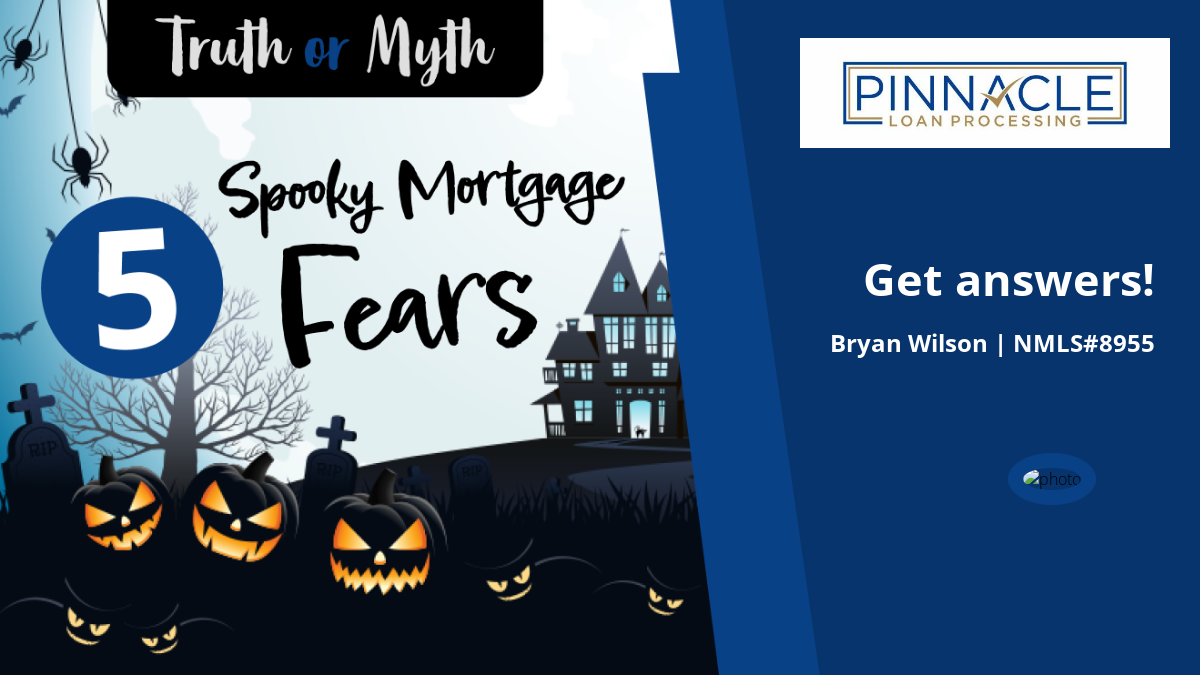The truth about the most common mortgage fears.

Nervous about applying for a home loan? Here are the not-so-scary facts:
Fear #1: You need a 20% down payment.
While a 20% down payment means you won't pay private mortgage insurance (PMI), you can buy a home with much less down. There are loan programs that require as little as 3% down. Are you a veteran, currently enlisted, or a spouse of an armed forces member? Then you may qualify for zero down!
Myth #2: You won't qualify if you have student loans.
Student and credit card debt are different "in the eyes of lenders." Even with considerable student debt, buying your first home is still possible.
Fear #3: Avoid adjustable-rate mortgages, no exceptions.
You may be wary of adjustable-rate mortgages (ARMs), but there's no need! Past mortgage troubles associated with this type of loan were more of an issue of too-lax qualifying standards and less about the loan program itself. ARM loans have low fixed interest rates for the first few years and are a good option if you plan on refinancing or selling within ten years.
Fear #4: You won't qualify for any government-backed home loan.
Government-sponsored loans from Fannie Mae and Freddie Mac have numerous affordable lending options. Eligibility is more accessible than other loan programs and could be based on your income, your military status, and even your first-time homebuyer status!
Myth #5: Working with a real estate agent will make you feel pressured.
Real estate agents aren't salespeople; they're your advocate. They know the housing market well, know all the right questions to ask to negotiate on your behalf, and make sure that you are delighted with your new home purchase.
✅ Benefits of Contract Loan Processing for VA Loans
-
Specialized VA Knowledge
-
VA loans have unique requirements (COE, residual income, funding fee calculations, appraisal requirements).
-
A contract processor experienced in VA loans can spot potential issues early and streamline the process.
-
-
Cost Savings for Lenders
-
No need to hire full-time staff; processors are paid per file.
-
Helps smaller brokerages or lenders manage fluctuating loan volumes without carrying extra payroll.
-
-
Faster Turn Times
-
Contract processors often work remotely and are paid per closed file, so they’re incentivized to move loans quickly.
-
They can push COE requests, follow up on VA appraisals, and ensure VA-specific forms (26-1880, 26-8923) are completed on time.
-
-
Compliance & Accuracy
-
VA has strict guidelines (e.g., allowable fees, seller concessions, and veteran protections).
-
A skilled processor reduces risk of compliance errors that could lead to loan buybacks or funding delays.
-
-
Scalability
-
During high volume seasons (e.g., rate drops, PCS military moves), lenders can bring on extra processors quickly without long-term HR commitments.
-
-
Reduced Loan Officer Burden
-
Lets LOs focus on originating, networking, and serving clients while the processor handles gathering DD-214s, income docs, pest inspection reports (if required), and underwriting conditions.
-
-
Improved Borrower Experience
-
Veterans and active-duty borrowers often value clear communication and speed.
-
A processor who knows the VA process can anticipate documentation needs and prevent last-minute surprises.
-
👉 In short: Contract processors help lenders stay lean, compliant, and efficient, while ensuring veterans have a smoother experience.
Get Your
FREE eBOOK
